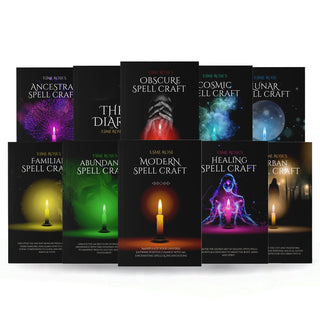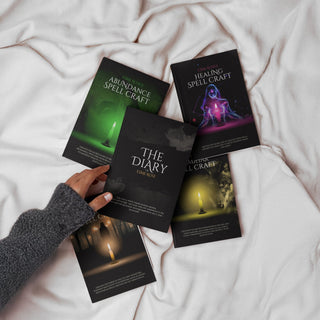The world of pagan deities is as vast and varied as the cultures that gave birth to them. From the sun-drenched pantheons of ancient Greece to the mystic gods of the Nordic fjords, pagan traditions have woven a rich tapestry of divine beings that continue to captivate and inspire. In this exploration, we'll journey across continents and through time to discover some of the most prominent pagan gods and goddesses from various cultures.
Understanding Paganism and Polytheism
Before we delve into specific deities, it's important to understand the context of paganism and polytheism:
- Paganism: A term encompassing various polytheistic, nature-based religions and spiritual traditions.
- Polytheism: The belief in or worship of multiple deities, often organized into a pantheon.
- Nature Connection: Many pagan traditions emphasize a strong connection to the natural world.
- Cultural Diversity: Pagan beliefs vary widely across different cultures and historical periods.
Greek Pantheon
The gods and goddesses of ancient Greece are among the most well-known pagan deities:
- Zeus: King of the gods, associated with thunder and the sky.
- Hera: Queen of the gods, goddess of marriage and family.
- Athena: Goddess of wisdom, war strategy, and crafts.
- Apollo: God of music, poetry, sun, and prophecy.
- Artemis: Goddess of the hunt, wilderness, and the moon.
- Aphrodite: Goddess of love, beauty, and passion.
- Poseidon: God of the sea, earthquakes, and horses.
Roman Pantheon
While often equated with Greek gods, Roman deities had their own unique aspects:
- Jupiter: King of the gods (equivalent to Zeus).
- Juno: Queen of the gods (equivalent to Hera).
- Mars: God of war and agriculture.
- Venus: Goddess of love and beauty (equivalent to Aphrodite).
- Mercury: God of commerce and communication (equivalent to Hermes).
- Diana: Goddess of the hunt and moon (equivalent to Artemis).
Norse Pantheon
The gods and goddesses of Norse mythology continue to inspire modern culture:
- Odin: All-Father, god of wisdom, poetry, death, and magic.
- Thor: God of thunder, strength, and protection.
- Frigg: Goddess of foresight, wisdom, and motherhood.
- Freya: Goddess of love, beauty, and fertility.
- Loki: Trickster god, shape-shifter associated with mischief and chaos.
- Tyr: God of law, justice, and heroic glory.
Egyptian Pantheon
The ancient Egyptian gods and goddesses are known for their unique animal-headed depictions:
- Ra: Sun god, creator deity often depicted with a falcon head.
- Isis: Goddess of motherhood, magic, and fertility.
- Osiris: God of the afterlife, death, and resurrection.
- Anubis: God of mummification and the afterlife, depicted with a jackal head.
- Bastet: Goddess of protection and cats, often shown as a cat or cat-headed woman.
- Thoth: God of wisdom, writing, and the moon, depicted with an ibis head.
Celtic Pantheon
Celtic deities vary across different regions but share common themes:
- Brigid: Goddess of poetry, healing, and smithcraft.
- The Dagda: Father god associated with fertility, agriculture, and wisdom.
- Morrigan: Goddess of war, fate, and death, often appearing as a trio.
- Lugh: God of skills and crafts, associated with the sun and harvest.
- Cernunnos: Horned god of nature, animals, and the underworld.
Slavic Pantheon
The gods and goddesses of Slavic paganism are less well-known but equally fascinating:
- Perun: God of thunder and lightning, often considered the head of the pantheon.
- Veles: God of the underworld, earth, waters, and cattle.
- Mokosh: Goddess of fertility, women, and household.
- Svarog: God of fire and smithing, celestial creator.
- Jarilo: God of vegetation, fertility, and spring.
Aztec Pantheon
The gods of the Aztecs reflect the complex culture of pre-Columbian Mesoamerica:
- Huitzilopochtli: God of war, sun, and human sacrifice.
- Quetzalcoatl: Feathered serpent god of wind, air, and learning.
- Tlaloc: God of rain, water, and fertility.
- Coatlicue: Goddess of fertility, life, death, and rebirth.
- Xipe Totec: God of spring, renewal, and goldsmiths.
Hindu Deities
While Hinduism is not typically classified as pagan, its vast pantheon shares many similarities with pagan traditions:
- Brahma: The creator god, part of the Trimurti.
- Vishnu: The preserver god, known for his avatars.
- Shiva: The destroyer god, associated with transformation.
- Ganesha: Elephant-headed god of wisdom and new beginnings.
- Lakshmi: Goddess of wealth, fortune, and prosperity.
- Kali: Fierce goddess of time, change, and destruction.
Common Themes Across Pantheons
Despite their diversity, many pagan pantheons share common themes:
- Nature Forces: Gods and goddesses often personify natural phenomena.
- Cosmic Balance: Many traditions feature deities representing opposing forces.
- Fertility and Abundance: Agricultural societies emphasized deities of growth and harvest.
- Afterlife and Rebirth: Many pantheons include gods associated with death and the afterlife.
- Wisdom and Crafts: Deities often patronize human skills and knowledge.
Modern Pagan Practices
Contemporary paganism, or neopaganism, often draws inspiration from these ancient deities:
- Wicca: Often focuses on a Goddess and God, sometimes identified with specific ancient deities.
- Asatru: Modern practice centered on Norse deities.
- Hellenismos: Revival of ancient Greek religious practices.
- Kemeticism: Modern worship of ancient Egyptian gods.
- Eclectic Paganism: Combines deities and practices from various traditions.
The Enduring Legacy of Pagan Deities
The gods and goddesses of pagan traditions represent more than just ancient beliefs; they embody timeless aspects of the human experience and our relationship with the natural world. From the thunderous might of Zeus and Thor to the nurturing embrace of Isis and Frigga, these deities continue to captivate our imagination and inspire spiritual exploration.
Whether viewed as literal beings, archetypal energies, or symbolic representations of natural forces, pagan gods and goddesses offer a rich tapestry of myths, symbols, and wisdom. They remind us of our deep connection to the earth, the cycles of nature, and the complex interplay of forces that shape our world.
As we continue to navigate the complexities of modern life, many find solace, inspiration, and guidance in these ancient deities. The diversity of pagan pantheons reflects the beautiful variety of human cultures and our enduring quest to understand the mysteries of existence.
Whether you're a practicing pagan, a student of mythology, or simply curious about diverse spiritual traditions, exploring these pantheons can offer profound insights into human history, psychology, and our eternal search for meaning in the cosmos.










